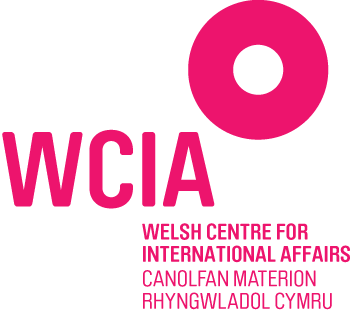Written by Santi, our long term ESC Volunteer
Both my Spanish grandmothers had the arduous daily task of collecting water from public fountains in their hometowns. Washing clothes or dishes meant recurrent back-and-forth visits to the local river, where women would gather while doing their chores. I can’t even picture the struggle of this monotonous task, in all seasons, when temperatures rose over 40ºC or dropped below 0ºC.

Today, I can just open the tap and water flows for whatever I want or need – drinking, showering, washing my clothes.
And this doesn’t include the many industrial uses – agriculture, farming, manufacturing and more where we take water for granted.
From my grandmothers seeking water to me opening the tap today, there is just a two-generation gap, but my grandmothers’ reality is still a vivid reality for many people around the world today:
- 2.2 billion people around the world live without access to safe water.
- 3 billion people worldwide lack basic handwashing facilities at home, exacerbating the impact of #Covid-19.
- By 2030, over 700 million people could be displaced due to water scarcity.
- In contrast, in the UK, 100% of the population have access to drinking water, and 98% have access to a safely managed sanitation service.
- 74% of water use is in the service sector, with agriculture, forestry and fishing accounting for 14% of the total.
- In Wales, over 300,000 water tests are analyzed yearly by Welsh Water to meet up to 99.96% of drinking water quality standards.
If the global pandemic has taught us anything, it is the importance of local, national and global solitary. We have a finite amount of water on the planet and all need to act to look after this precious resource.
World Water Day 2021 is a reminder that over 2 billion people around the world do not have access to safe water, and that we all can act on this global issue. So what can we do?
Action on water

#WorldWaterDay2021 aims to raise awareness to help us achieve Sustainable Development Goal 6: Clean Water & Sanitation by 2030.
We can start by asking ourselves questions about how we use water and look for ways to approach our own consumption responsibly.
- How much water do I use?
- Can I reduce my water use? Welsh Water have a number of tips – there are also tips and resources for children on the Waterwise website
- What does water mean to me? Do I even think about it while I’m using it? Have I ever been short of water?
- How do I use water? Does it play a role in my cultural practices?
- What role will water play in my future and the future of my family?
These questions can help us meet this year’s #WorldWaterday theme – Valuing Water.
If you want to go beyond thinking about your own water use and take action:
- United Nations World Water Development Report can help you to understand the issues, providing different tools for sustainable water management, offering regional information and personal stories.
- Act UN allows people to engage on social media in real-time conversations on the way different communities value their water resources.
- Raise awareness yourself using #WorldWaterDay and #Water2me on your social media channels.
Water in Wales

In Wales, Welsh Government legislates and acts as policy-maker—including directing water companies to publish their plans. Natural Resources Wales‘ role is to protect the environment and ensure security of public water supply through sustainable practices. Welsh Water is a not-profit company and supplies most of the water in Wales.
Find out more:



Thanks so much Santi! I have a difficult question for you in case you can help me. I spend a few days in a Palestinian refugee camp in Lebanon before covid and I saw how they only had access to sea water through their taps and had to buy water in the shop to Nestlé. I wonder if you know a way to sort this problem without the support of the Lebanese government. These camps have been there since the 1950s and are very likely to stay as they are unfortunately.
Nidal, thank you for your message. Unfortunately, water accessibility is an ubiquitous problem worldwide. The following UNICEF link has got insightful information that may be of use: https://www.unicef.org/lebanon/stories/water-establishments-lebanon-empowered.
Best regards,
WCIA Comms Team